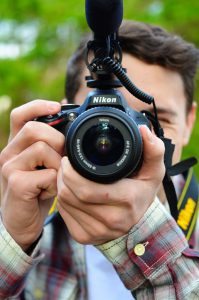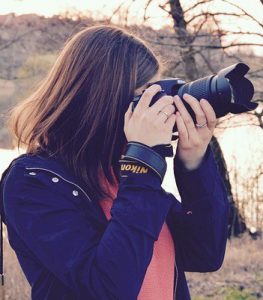Are you struggling with all the different options for cameras out there? I know I am! There are so many choices, and it seems like every week a new model is released. But don’t worry—we’re here to help. In this article, we’ll discuss what makes a good camera and how to choose one that fits your needs perfectly.
Focus on the lens
While you can find a premium camera that comes with a wide range of features, the most important part of any professional camera is the lens. A good lens will make your photos look sharp and crisp. It’s what you see through your viewfinder or screen. And it’s generally more expensive than the body itself.
So what kind of lenses should you be looking for? If you’re just getting started, it may be best to start with something basic and then add additional lenses as necessary once you’ve gotten used to using them on an everyday basis and have decided where else they might come in handy for different situations.
Look for special features
 Consider how you’re going to use the camera. If you are going to be shooting in different lighting conditions, look for a camera that has manual controls and an ISO range of at least 400-6,400.
Consider how you’re going to use the camera. If you are going to be shooting in different lighting conditions, look for a camera that has manual controls and an ISO range of at least 400-6,400.
Look up reviews on features you might like. For instance, if you want a camera with good low light performance, look at reviews of cameras with larger sensors and higher ISOs; if you want something compact and portable, check out cameras with smaller sensors but more megapixels.
Check out the manual! This may seem obvious but sometimes when shopping online it’s easy to get caught up in all the specs listed on Amazon or Best Buy without actually reading what those specifications mean for your needs as a photographer.
Expect to spend a lot of money
Cameras are an investment. If you’re serious about photography, whether for work or pleasure, you’ll want to consider spending more than $200 on a camera. There are plenty of cheaper options out there for amateurs, but if you’re considering using your equipment professionally—and especially if you’re looking at the high-end models—you should be prepared to spend thousands of dollars.
The price tag is just one factor that should influence your choice in cameras; what exactly do you want to use it for? For example: if your goal is to create a portfolio and sell prints online or in galleries, then price is less important than functionality and quality (especially when it comes to lenses).
The best camera is one that works for you
 If you’re a professional photographer, or aspire to be one, your job is to capture photos that are going to sell products and services. The right camera can help make this happen.
If you’re a professional photographer, or aspire to be one, your job is to capture photos that are going to sell products and services. The right camera can help make this happen.
On the other hand, if your goal as a hobbyist photographer is simply capturing moments as they happen with as little stress as possible, then having a huge selection of lenses might not matter much for your personal sense of satisfaction with an image; instead what matters is whether or not the image came out looking good when transferred from memory card onto screen/paper/etc., which can be achieved with just about any modern point-and-shoot camera these days!

